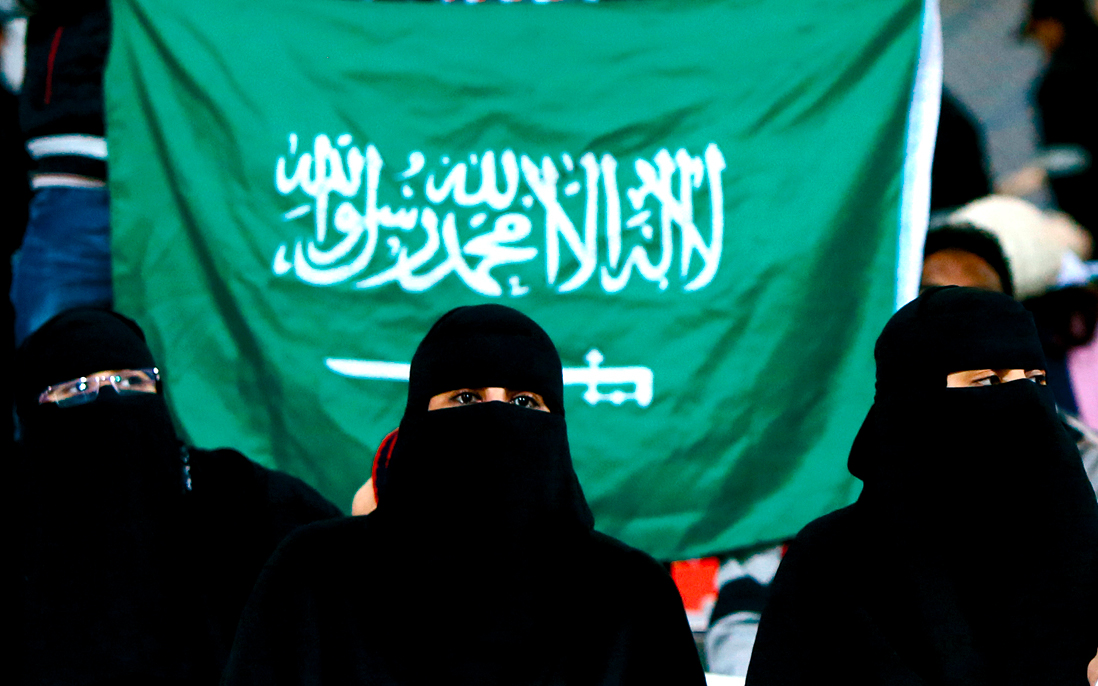In 2015, Saudi Arabia afforded women the right to vote and stand in municipal elections. The government has also taken steps to open the labor market to more women. Despite these changes, the underlying nature of women’s engagement in Saudi society remains stifled, as Saudi women remain subject to the kingdom’s system of male guardianship, under which every Saudi woman, regardless of her age, is under the authority of a male relative or a male legal guardian. As Aziza Yousef, a professor at Riyadh’s King Saud University stated, “Until [the guardianship rule] goes, all the changes are just a show for the outside.”
Saudi Arabia’s unique system of male guardianship is a byproduct of the kingdom’s highly conservative patriarchal social norms and Wahhabi religious doctrine. Under the system, all Saudi women must have a male guardian, who is empowered to make critical decisions on her behalf. This means women must obtain permission from their guardian if they want to travel abroad, marry, or be released from prison. They may also be required to provide guardian consent in order to work or access health care. As a result of these wide-ranging restrictions, the Saudi state has reduced women to permanent legal minors who are not allowed to make decisions for themselves.
In spite of the guardianship system’s restrictive nature, some women have resisted and challenged the system. In July 2010, Samar Badawi won a Jeddah court case in which the court ruled in her favor after she sued her father for refusing to let her marry. Her suit dates to March 2008, when she escaped from her father’s house to the Protection Home in Jeddah, a shelter for victims of domestic violence, because of her father’s physical abuse. As a result of her leaving, in 2009, her father successfully sued her for “disobedience,” and she was arrested in April 2010. She spent seven months in jail before being released after an international outcry about her situation.
Badawi’s father won the court case against her despite credible reports of domestic violence. A 2010 government committee report stated that Badawi’s father had been violent against her. Another report, in 2008 by a psychologist at the Protection Home, stated that Badawi’s father exhibits “psychopathic behavioral anxiety.” However, because the Saudi government recognizes filial “disobedience” as a crime, Badawi was found to have broken the law.
The guardianship system has continued to function since Badawi’s case, restricting women’s freedom of movement, freedom to study, freedom to work, and ability to escape domestic violence. Zahra’s father beat her and her sister, refused to let her study abroad, and has denied her the ability to work. However, her attempts in 2015 to transfer guardianship from her father were unsuccessful. In 2011 and 2012, Rania attempted to rent an apartment and buy a car for herself, however, in order to complete any of the transactions, she needed to have her brother sign the lease and use his driver’s license. These practices are sanctioned by the government, which gives guardians extraordinary powers over their dependents. As a result of these state sanctioned policies, woman rights activist, Hala al-Dosari drafted and circulated a petition in 2016 calling for the abolition of the male guardianship system that has been signed by almost 15,000 people.
Under the guardianship system, women are often in the legal care of men who control nearly every aspect of their lives. Women’s rights activists in Saudi Arabia have repeatedly called on the Saudi government to abolish the male guardianship system, including in a petition circulating now. Despite public pledges made by Saudi Arabia since 2009 to abolish the system, the kingdom’s failure to take action raises questions about its commitment to reform. The kingdom should uphold its international obligation to abolish the guardianship system.
Tyler Pry is the Sheikh Nimr al-Nimr Fellow at ADHRB





